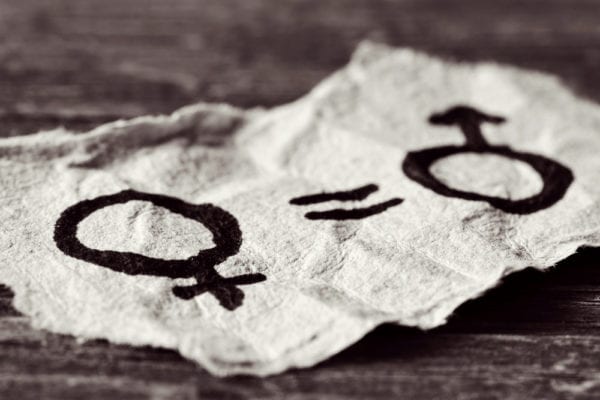Should the gender of an author matter?
Should the gender of an author matter?
Should the gender of an author matter?
-
Hannah
-
Hannah


Back in the nineteenth century, readers – men and women alike – began to discover and enjoy fiction by new novelists Currer Bell, Ellis Bell, Acton Bell and George Eliot. Male writers, you may well have assumed, but in fact these were the pen names of the Brontë sisters and Mary Ann Evans, so chosen to ensure they were taken seriously in the male-dominated field of literature.
Fast-forward to more recent times, and readers are confronted by covers on which the author’s name is deliberately gender-ambiguous. JK Rowling, of course, is the obvious example (but it’s notable that when she moved into writing crime thrillers, she stepped back in time some two hundred years and, like the Brontës and Evans, adopted a male nom de plume, Robert Galbraith).
It is not only female writers, though, who are opting for gender-ambiguous pen names. The Wall Street Journal recently published an article entitled ‘These Male Authors Don’t Mind if You Think They’re Women’. The article profiles male authors whose books have sold well under an ambiguous pseudonym. SJ Watson, for example, author of Before I Go to Sleep, is in fact Steve Watson, though his book is written from the first-person female perspective. His was one of the stand-out thrillers that launched the ‘Girl Who’ genre currently in vogue that is aimed at female readers.
In my genre, romance, male writers are under even more pressure to hide their gender. A 2014 Goodreads survey found that women read women; 80 per cent of a new female author’s audience is likely to be female. And yet women can also make the choice to be ambiguous; take EL James and JR Ward, for example.
Issues can emerge with using pen names to occlude gender, relating to discomfort in either the reader or the writer over lack of transparency and honesty. From the author’s point of view, it is one thing to choose to put a name on a book cover, but another to actually pretend to be that fictional person – to have Twitter conversations with readers under that name, for example. From the reader’s perspective, discovering that an author whose book they have enjoyed is not the gender they had assumed can be disconcerting. It can even feel like a betrayal – ‘It leads me to be suspicious of the writer,’ said one reader. ‘I just feel a little bit lied to.’
Book marketers insist gender-ambiguous pen names can make a difference. (Would JK Rowling have achieved her stratospheric success as Joanne? We can never know.) But clearly there is a down side to taking this marketing angle.
I am left wondering: should there even be a reason, in the twenty-first century, to consider concealing one’s gender? Should readers judge a fictional (or non-fictional) work based on the gender of its author?
In her 1847 book Jane Eyre, Charlotte Brontë wrote: “I am no bird; and no net ensnares me: I am a free human being with an independent will.” Her heroine’s words, and perhaps her own longing – for she was not free then to write as herself; she had published as Currer Bell. All these years later, one has to ask: should writers today be free to write as themselves?
In authors like JK Rowling’s choosing a gender neutral name there is also something else that I see. It is very common for men and women whose first or second name beginning with the letter “J’ to be called by their initials, especially in business. I myself will write out my name, but except in check writing sign as RE… If you read books by an author you like and read as many stories as you can get your hands on, it won’t take long to identify gender. I prefer female authors not only in fiction, but in politics, economics… Read more »
That’s really interesting – thank you for sharing. I agree that it is usually quite easy to determine gender, although Steve Watson hid his well!